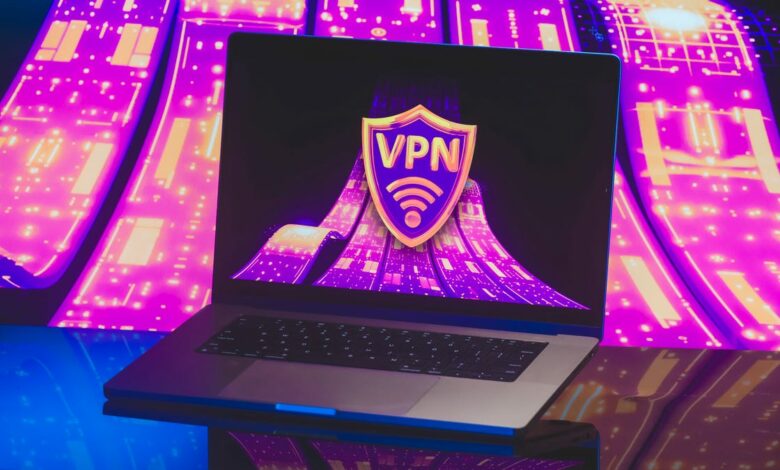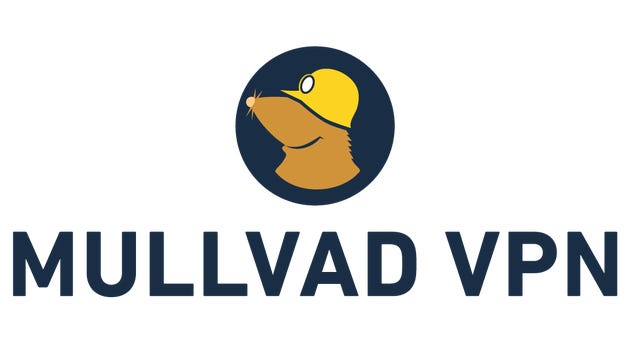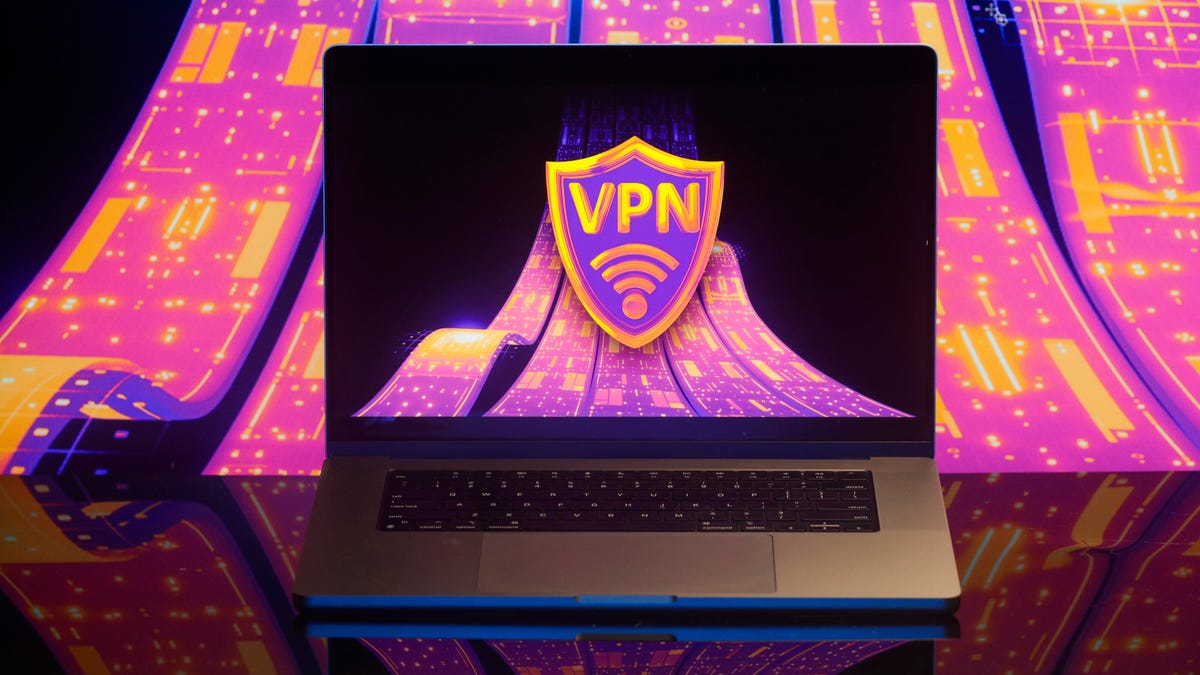Mullvad VPN Review 2024: A Budget-Friendly VPN That Pairs Excellent Speeds With Cutting-Edge Privacy




Price $5 per month
Latest tests No leaks, 13.5% speed loss in spring 2024 tests
Network 684 servers in 44 countries
Jurisdiction Sweden
Score Breakdown
Usability 7/10Value 8/10Speed 9/10Privacy 8/10Features 9/10
Pros
- Forward-thinking privacy initiatives
- RAM-only server infrastructure
- Budget-friendly
- Exceptional speeds
Cons
- No transparency reports
- Relatively small server network
- 14-eyes jurisdiction (Sweden)
- Not an ideal choice for streaming
Mullvad is excellent for the budget-conscious, privacy-focused VPN user who appreciates independently owned VPN products and the flexibility of not having to lock into a long-term subscription to save on the price. Mullvad doesn’t want to know anything about you: It doesn’t care about your name, email address or what you had for breakfast. And it would rather not have any insight into your payment details either.

Mullvad VPN focuses on security and privacy, but its jurisdiction and a couple of red flags mean we don’t recommend it in situations where privacy is absolutely critical.
The independently owned, Swedish-based VPN provider’s main priority is your privacy — a claim all VPNs make, but Mullvad is one of the few that actually walks the walk. Mullvad doesn’t require any personal information to sign up or use its service and actively advises users to pay for the service via crypto or cash rather than a credit card or bank transfer so it can process as little information about a user as humanly possible. That’s a stance I can get behind and is one of the many reasons I recommend this product.
My evaluation of Mullvad involved thorough testing of its features — speeds, streaming performance and privacy protections — along with a deep dive into its privacy policies and how the company handles user data. I communicated constantly with company representatives throughout the review process who answered my questions as I tested the service. I found that Mullvad is very thoughtful in its approach, hyper-focused and forward-thinking regarding user privacy. While Mullvad doesn’t offer an exhaustive list of servers or apps for every streaming device, its class-leading privacy and speeds make it a worthy VPN alternative to big-name rivals. Overall, it’s an excellent VPN that’s user-friendly for newbies and VPN veterans alike, easily competing with other top VPNs like ExpressVPN, Surfshark and NordVPN by offering cutting-edge privacy features on a budget.
Speed: One of the fastest VPNs we tested
- 13.5% speed loss in spring 2024 tests
- Number of servers: 684
- Number of countries: 44
Mullvad is one of the fastest VPNs we’ve tested, registering an average speed loss of just 13.5% — slightly slower than NordVPN’s best-in-class 11% speed loss and faster than Surfshark’s 17% speed loss. With many VPNs, you can expect to lose about half of your base internet speeds, so if your VPN cuts your regular speeds by 25% or less, you’ve got a fast VPN. With a fast VPN, you can stream videos without buffering, enjoy smooth video calls, torrent quickly and game without lag.
Despite having a small network of servers, Mullvad delivered fantastic speeds via both OpenVPN and WireGuard throughout the 252 speed tests I ran in May 2024. Having more servers in more countries can help ease the load on a server network while offering more nearby servers to more people, which can translate to faster overall speeds.
Mullvad’s network features just 684 servers spread across 44 countries. By comparison, other top VPNs like NordVPN, ExpressVPN and Surfshark have thousands of servers in 100 countries or more, which makes them excellent VPNs for travel.
Some VPNs’ speed performance can be highly inconsistent depending on the platform, protocol or even individual speed test. But Mullvad’s speeds were stable across the board, and I saw no significant speed fluctuations regardless of what device or protocol I used. Mullvad’s speeds were also consistent with what I would expect in relation to the distance between my physical location and the VPN servers through which I connected (generally, the further you are physically located from the VPN server, the slower your connection speeds will be). On my 370 Mbps internet connection in Ohio, my speeds to New York hovered around 350 Mbps, a nearly minimal dip. And to relatively distant VPN servers in Australia and Singapore, I saw speeds of around 280 to 290 Mbps. To the UK and Europe, I got speeds in the low to mid 300s with Mullvad.
As expected, I measured the fastest speed performance through WireGuard on MacOS, where I calculated a 10% average speed loss. OpenVPN speeds through MacOS were only slightly slower, at a 12% speed loss. Mullvad’s speed performance on my Windows machine was somewhat surprising because OpenVPN speeds were faster (15% speed loss) than WireGuard (17% speed loss). You’ll generally get faster speeds through WireGuard than through OpenVPN because it’s a lighter-weight protocol optimized for speed, whereas OpenVPN has a much bulkier codebase optimized for security.
I was happy with Mullvad’s speed performance overall, but I was especially impressed by the VPN’s speeds through OpenVPN. Mullvad provides some of the best OpenVPN speed performance I’ve seen from a VPN, with 12% and 15% speed loss through OpenVPN on MacOS and Windows respectively. By comparison, I lost 58% of my speed on MacOS and 67% on Windows through OpenVPN with IPVanish.
Key takeaway: Despite its relatively minuscule server network compared with many VPN rivals, you can expect excellent speeds with Mullvad. It’s currently the second-fastest VPN we tested based on our most recent speed benchmarking, and it’ll give you enough velocity for anything you’d want to do online, including data-heavy activities like gaming, streaming, torrenting and video conferencing.
Cost: Subscriptions aren’t available, but Mullvad is budget-friendly with no-nonsense pricing
- $5 per month
- Money-back guarantee: 30 days
- Payment options: Credit card, PayPal, bank transfer, cash, Bitcoin, Bitcoin Cash, Monero, Swish, Giropay, Eps transfer, iDeal, Przelewy24
- Apps available for Windows, MacOS, Linux, iOS, iPadOS, Android, Android TV, Fire TV, Browser/Browser extension
If you’re put off by VPN providers’ complicated — and sometimes deceptive — pricing structures, including massive price hikes after an initially attractive introductory price, then Mullvad is for you. Mullvad’s pricing is about as simple as you can possibly get — $5 per month, period, end of story. Mullvad did away with subscriptions in 2022 in an effort to store less data and better protect user privacy. Instead, when you sign up, you generate a 16-digit code to activate the service on your devices and manage your account. You can add as many months to your account as you want for just $5 per term — so a full year would set you back $60 upfront. The app tells you how many days you have left on your account, and you can top it up whenever you please. There are no automatically recurring subscriptions of any sort.
But when comparing Mullvad’s pricing to other top VPNs’ prices, a year of Mullvad would cost $60, making it one of the cheaper VPNs available on an annual basis. Many VPNs, like Surfshark, NordVPN and Proton VPN, offer attractive introductory prices that spike significantly after the initial term of the subscription. For example, Surfshark costs $42 for the first year but $60 annually thereafter, and NordVPN starts at $69 for the first 15 months, then balloons to $100 annually. A year of Mullvad is more expensive than PIA’s $40 yearly price but far cheaper than the $80 per year for Proton VPN or the $100 per year that ExpressVPN and NordVPN charge their subscribers. You can even get Mullvad slightly cheaper if you purchase from a reseller like Amazon, where 12 months will cost you $57. And if you’re going month by month, there’s no beating Mullvad’s $5 per month when most VPNs’ monthly pricing ranges from Proton VPN’s $10 per month to Surfshark’s head-scratchingly bloated $15.45 monthly price.
I like Mullvad’s flexibility with its no-nonsense $5 per month pricing. You’re never locked into a lengthy subscription plan, and you can come and go as you please, depending on your personal needs.
While most VPNs require at least an email address to sign up and purchase a subscription, Mullvad requires zero personal information — you don’t need to provide a name, email address or username to get started. You don’t even need to create a password because you use your randomly generated account number to log in and use the service.
You can purchase access to Mullvad’s VPN service using traditional payment methods like credit/debit cards and PayPal. But Mullvad also accepts various international online payment methods and cryptocurrencies like Bitcoin or Monero. You can even send an envelope stuffed with cash if you want to stay as private as possible. While you can pay via bank transfer, Mullvad’s Privacy Policy warns against doing so if you’re concerned about having your account traceable to you because your account number will be visible in the memo field of the bank transaction.
Mullvad offers apps for major computer and mobile platforms, but limited support for streaming devices
If you’re looking for a seamless experience on devices like your smart TV or Apple TV, you’ll want to look elsewhere because Mullvad has limited support for streaming devices, instead focusing on apps for computers and mobile devices. Android TV users can download the Mullvad app directly from the Google Play store. Although Mullvad doesn’t offer a native app specifically for Amazon Fire TV Stick devices, you can download Mullvad’s Android .apk to use on any Fire TV device running Android 8 or later.
Mullvad offers apps for Windows, MacOS, Linux, Android and iOS — and delivers a consistent app experience across platforms, with minor feature differences depending on the platform. For example, split tunneling is available on Mullvad’s Windows, Linux and Android apps, but not on its MacOS or iOS apps. Split tunneling on MacOS and iOS is a rarity that few VPNs offer due to limitations imposed by Apple. As of now, Mullvad says that there is no time frame for rolling out split tunneling on MacOS. Linux users will appreciate Mullvad’s full Linux graphical user interface, which may be more user-friendly for beginners, but many VPNs still lack.
Overall, I like the app’s clean look and smooth interface across devices. It’s user-friendly, with all of the features neatly laid out and simple to access. It connects in a snap, and it’s easy to tell at a glance whether you’re connected — which is not always the case with some VPN apps. You’ll be able to connect up to five devices simultaneously. That’s a relatively meager allowance compared to many other VPNs like NordVPN and Proton VPN, which allow for up to 10 simultaneous devices, or Surfshark and PIA, which allow you to connect an unlimited number of devices at once.
Though five simultaneous devices should be enough for the average VPN user, power users, families or people with a lot of devices may find it limiting. If you want to use the VPN on more than five devices at once, Mullvad offers step-by-step instructions for setting it up on a VPN-compatible router. Setting a VPN up on a router can be difficult and even risky — you might risk bricking your router or voiding its warranty. But it allows you to connect as many devices to the VPN as you wish, and can be helpful if you want full VPN coverage on your network or the ability to use Mullvad on devices it doesn’t support, like your smart TV, Apple TV or even your gaming consoles.
Mullvad isn’t ideal for streaming enthusiasts, but it does a good job of unblocking content on supported devices
During my testing, I was able to access content on popular streaming services like Netflix, Hulu and Disney Plus while connected to Mullvad’s servers in regions like the US, Germany, Japan, Canada and Denmark. However, Amazon Prime Video detected the VPN and blocked my access to the content while I was connected to Mullvad. Mullvad’s fast connection speeds provided a smooth streaming experience devoid of buffering, regardless of which country I connected to or whether I was streaming on desktop or mobile. I was able to stream titles like Breaking Bad and Seinfeld on Netflix, Schitts Creek on Hulu and The Mighty Ducks on Disney Plus.
A Mullvad representative told me via email that the company doesn’t currently have any specific plans to develop an Apple TV app, but might do so at some point in the future.
Key takeaway: Mullvad’s straightforward pricing is a breath of fresh air in an expanding sea of maddeningly complicated and ever-shifting VPN pricing structures. It’s a cheap VPN that offers a ton of value and flexibility. For $5 per month, you get a first-class VPN whose overall speed and privacy performance stacks up nicely against other budget-friendly VPNs like Surfshark or PIA, as well as more expensive VPNs like ExpressVPN or NordVPN. Apps are a breeze to use, and they get the job done for basic streaming activities on desktop and mobile, even if the experience isn’t nearly as seamless as other VPNs if you’re looking to use it to stream on your TV.
Privacy and security: Forward-thinking privacy, open-source and transparent
- Jurisdiction: Sweden
- Encryption: AES 256-bit (OpenVPN), ChaCha20 (WireGuard)
- Protocols available: OpenVPN, WireGuard
- Latest tests: No leaks detected
If you appreciate VPNs that emphasize privacy above all else — and actually deliver in that regard — then Mullvad could be the VPN for you. Like two of CNET’s other top VPNs, PIA and Proton VPN, Mullvad’s apps are fully open-source, meaning that the source code is freely available to the public for scrutiny. This helps build trust by allowing anyone to inspect the code to check for potential vulnerabilities and ensure that the VPN is doing what it says it does to protect users’ privacy.
Mullvad boasts a strict no-logs policy that’s been audited
If you’re not into inspecting source code, then you’ll be happy to know that Mullvad has been independently audited by security professionals on multiple occasions. The latest security audit was conducted by Radically Open Security in May 2023 — with the final report published in August 2023. The audit focused on the security of Mullvad’s server infrastructure and its no-logging policy, finding that “significant effort had been put into preserving VPN clients privacy” and “found no logging of user activity data” during the audit. Mullvad promises to “log nothing whatsoever that can be connected to a numbered account’s activity,” including user traffic, DNS requests, IP addresses and connection timestamps. Though a VPN provider’s no-logs claims are impossible to verify completely, independent audits provide another important trust signal that the VPN really isn’t tracking what you’re doing while connected to its network.
I appreciate that Mullvad has made the full audit report available to the general public, which starkly contrasts with how IPVanish makes its audit report available only to paying customers, requiring them to provide personal information for the privilege. A Mullvad representative told me that the company will undergo an external security audit every two years. That’s a bit less frequent than the annual audit cadence we would ideally like to see from a VPN, but I’m happy to hear that Mullvad has at least committed to regular bi-annual security audits.
That said, I’m more impressed with Mullvad’s long-term goal of making its VPN servers completely transparent and auditable by any user in real-time through its System Transparency initiative in collaboration with 9elements Cyber Security. “We are continuously striving to strengthen the trustworthiness of all aspects of our service. This is why our VPN apps have been open source since we started over 12 years ago,” Mullvad says on its website. “Achieving transparency on the server side is a very different challenge, as merely open sourcing our server software is not enough. We want our users to be able to verify and audit what is currently running on the VPN server they are connected to.” Once the initiative is in place, it will more than make up for not publishing audits on a yearly basis because Mullvad will be opening up its servers to continuous scrutiny rather than just once every two years. It will even go above and beyond the annual audit cadence that a few other VPNs like ExpressVPN and NordVPN currently have in place.
Mullvad’s privacy isn’t all talk
In addition to audits, real-world legal action can put a VPN’s no-logging claims to the test. For instance, in a highly publicized (in VPN circles) incident in April, 2023, Mullvad’s offices in Gothenburg were raided by Swedish police acting on a search warrant in cooperation with German authorities investigating a 2021 blackmail attack against municipal offices in the German state of Mecklenburg-Western Pomerania. Evidently, a Mullvad IP address was connected to the attack, which triggered the police raid on the VPN company’s offices. Swedish police left Mullvad offices empty-handed without any customer data because that data didn’t exist.
Mullvad VPN AB is owned and operated by parent company Amagicom AB, which is run by Mullvad founders Fredrik Strömberg and Daniel Berntsson. The company’s Swedish jurisdiction may cause concern for VPN users with extreme privacy needs due to Sweden’s 14-eyes membership and its extensive electronic surveillance laws. However, Mullvad says that the specific laws don’t apply to its service because the VPN isn’t considered an electronic communications service under Swedish law. Mullvad also states that Swedish law doesn’t allow any government to force it to spy on its users and goes as far as to say that it’s prepared to shut down its service in any jurisdiction that may succeed in forcing it to monitor user activity.
Mullvad offers a robust privacy suite with forward-thinking features
Mullvad uses industry-standard AES 256-bit encryption to secure OpenVPN connections and ChaCha20 for WireGuard connections. Typically, OpenVPN is better suited for obfuscation (hiding the fact that you’re using a VPN) than WireGuard, but Mullvad’s WireGuard implementation allows for obfuscation through the protocol, which disguises your VPN traffic as regular HTTPS traffic to help you bypass firewalls and censorship because apps and websites won’t know you’re using a VPN. Another concern about WireGuard is that your public IP is temporarily stored in memory during the connection. Although WireGuard deletes the IP addresses after a server reboot, Mullvad says it further protects users by removing and reapplying the peer if a handshake doesn’t occur within 600 seconds. Mullvad says this “removes the public IP address and any info about when it last performed a handshake.” This ensures that the IP is wiped after 10 minutes of inactivity rather than however long the VPN server may be active.
I like how Mullvad’s kill switch is enabled by default and cannot be disabled. A VPN kill switch helps ensure that your traffic is never leaked unencrypted and your IP address is never exposed, making it easy for your ISP and other entities to track you online. The kill switch does this by killing your internet connection in case your VPN drops at any point — and if the kill switch is permanently enabled, that means you can’t inadvertently leave the feature disabled and risk your privacy. The kill switch worked flawlessly in my testing. I also appreciate that the kill switch automatically kicks in when you jump from one server to another. Most other VPNs break the connection during the server switch, which can expose your traffic data and true IP address momentarily.
Leaking sensitive online activity unencrypted, even for a split second, can be dangerous. Mullvad’s kill switch blocks your internet connection during the hop to ensure that doesn’t happen. Other VPNs, like ExpressVPN and Surfshark, issue a disconnection warning before initiating the server switch but don’t secure the connection during the jump from one server to another. NordVPN reconfigures the connection during a server switch without breaking the tunnel, similarly protecting users from leaking data as they switch server locations.
During my testing, I didn’t detect any DNS leaks on MacOS, Windows and iOS. However, I did replicate an Android DNS leak issue detailed in a recent Reddit post by a Mullvad user that can occur with certain settings enabled. With the Always-on VPN and Block connections without VPN settings enabled in the Android settings, a DNS leak can occur when you disconnect from a VPN server then reconnect — which obviously shouldn’t happen if those system settings are enabled. Mullvad confirmed that the issue can occur in various Android versions, including Android 14, and that it is an OS issue that can affect any VPN on Android. Mullvad is working on various workarounds to the issue that will be available in a future release and has reported it to Google with suggested fixes.
In September 2023, Mullvad completed its transition to a RAM-only server infrastructure. This was an important step toward better preserving user privacy because when VPN servers run on RAM, theoretically no data is saved on a hard disk. Any data on the server gets completely wiped if it is rebooted or moved, minimizing the risk of inadvertently storing any data. It’s good to see Mullvad strengthening its already strong commitment to privacy by migrating to RAM-only servers, continuing an encouraging trend in the VPN industry embraced by other top VPN providers like ExpressVPN, NordVPN, Surfshark and PIA.
Mullvad has also implemented a few forward-thinking initiatives that help protect users against future threats to their privacy, including AI- and quantum-related threats. Mullvad’s Quantum-resistant tunnel feature is available through the WireGuard protocol on Windows, MacOS, Linux and Android devices. The company says the feature “makes the WireGuard tunnel resistant to potential attacks from quantum computers” by “performing an extra key exchange using a quantum-safe algorithm and mixing the result into WireGuard’s regular encryption.” Mullvad and ExpressVPN are currently two of the only VPNs that offer such a feature.
Another cool initiative Mullvad recently implemented is protection against AI-driven traffic analysis. Even though your traffic is encrypted through a VPN, the size and timing of the data packets you’re sending and receiving are still visible to your ISP. Any individual or entity with eyes on those data packets could theoretically leverage AI to analyze traffic patterns to determine the sites you’re visiting.
Mullvad’s new Defense against AI-guided Traffic Analysis helps protect against this threat by making all data packets sent through the VPN the same size, introducing random dummy packets into the user’s traffic and “unpredictably sending cover traffic in both directions between client and VPN server.” In a nutshell, DAITA makes it virtually impossible to analyze traffic patterns that can potentially identify the websites you’re visiting by making all packet sizes uniform and mixing in garbage data. DAITA is currently available on the beta version of Mullvad’s Windows app, but a company representative told me it will be rolled out to other platforms in the future. It’s a really clever and unique way to fight back against growing AI threats to online privacy and sets Mullvad apart from the competition.
Key takeaway: Mullvad is one-of-a-kind in the way it approaches user privacy — and despite its Swedish jurisdiction, the company has me convinced that it’s safe for privacy critical VPN users.
Mullvad is a small but mighty VPN that easily holds its own against the big dogs
I really like Mullvad’s candid, no-nonsense attitude that places user privacy at the forefront of everything it does. I’d like to see Mullvad issue transparency reports like many other VPNs do — a Mullvad representative told me that the company doesn’t believe transparency reports are useful because they can’t be verified. Still, I think its overall commitment to transparency is solid, especially considering it’s perhaps the only VPN that is gearing up to make its servers transparent and auditable to any user at any time.
Its speeds are outstanding and the service is suitable for basic streaming activities. Mullvad indicated to me that it would consider adding apps for streaming devices in the future, which would be a welcome addition, although I realize that Mullvad’s primary focus is privacy. Mullvad’s server network is smaller than other top VPNs, but the company — as with everything it does — is intentional and privacy-focused with its approach to expanding its server network. I’m impressed with Mullvad’s forward-thinking privacy initiatives and recommend the service to anyone with heightened privacy needs like journalists, activists, dissidents and lawyers.
Mullvad’s overall app performance, speeds, value, ease of use and unique features like DAITA and quantum-resistant tunnels stand tall alongside other top VPNs like PIA, Surfshark, ExpressVPN, NordVPN and Proton VPN. Mullvad is great for budget-minded, privacy-focused folks who want to support an independently owned VPN provider that actually walks the walk when protecting user privacy.




